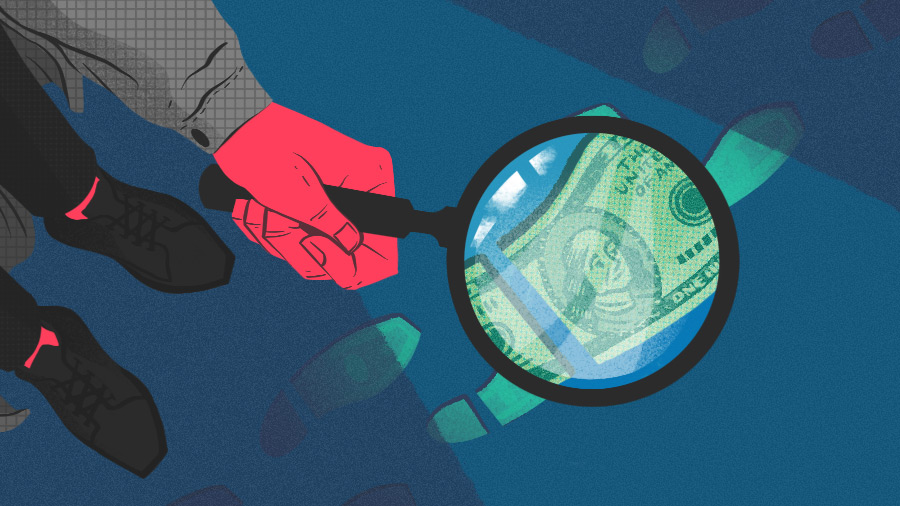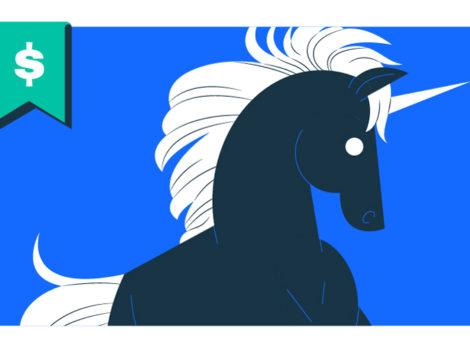There are a few venture investor names that come to mind when thinking about backers of the most valuable fintech and media unicorns. Snoop Dogg is not usually among them.
Subscribe to the Crunchbase Daily
Perhaps that’s an oversight. At the end of a week that saw Klarna cement its status as Europe’s most valuable startup and Robinhood move closer to an IPO filing at a reported valuation of up to $40 billion, it seems timely to observe that Snoop is an investor in both. What’s more, he got in at valuations several multiples lower than current levels.
It’s rare that multiple ultra-successful venture investments are the result of mere coincidence. It takes a long time in the ecosystem to reach the apex. And while Snoop is best known as a rapper and entertainer, and to a lesser extent a cannabis investor, Crunchbase data shows he and his investment team have been cultivating a varied venture portfolio for some time.
Snoop is one of several rappers investing actively in startups. As some early investments are maturing into unicorns and decacorns, we thought it’d be interesting to take a closer look at his and fellow artists’ portfolios as they have evolved.
The hip-hop startup connection
First, we should note the culture of startup investment and celebrity have become increasingly intertwined in the past decade or so. Hip-hop and pop artists, in particular, have been active investors in the startup space, as we’ve chronicled before.
Robinhood is a particularly prominent rapper-backed unicorn. Rap and entertainment mogul Jay Z is also an investor in the zero-fee stock trading platform. The fast-growing fintech is part of a broad portfolio of startups that he, along with his entertainment company Roc Nation and venture subsidiary Arrive, have backed. One of them, music service Tidal, was acquired by Square this week for $297 million.
Hip hop artist Nasir Jones, or Nas, is also a Robinhood backer, as part of an extensive venture portfolio that dates back a decade. He co-founded a venture firm, Queensbridge Venture Partners, that was an early-stage investor in video doorbell maker Ring and pharma delivery startup PillPack (both acquired by Amazon in billion-dollar deals), as well as soon-to-be-public Coinbase.
The artists listed above represent only a handful of the pop and hip-hop stars active in the startup scene. In our look at this space a couple years ago, we identified 21 artists (see list) who participated in seed and venture deals.
Amassing a portfolio
What’s the startup and rapper connection? We’ve postulated that rap and startup entrepreneurship are both longshot career tracks that celebrate raw ambition and unabashed self-promotion. To make it, both also require an excellent grasp of what sells in the real world.
That’s where Snoop comes in. Basically anyone with a smidgeon of pop culture familiarity has heard of Snoop Dogg (born Calvin Broadus). The breadth of his entertainment and business portfolio are somewhat encyclopedic, with his Wikipedia entry alone running to 31 pages. Best known as a rapper, the 49-year-old LA native has sold over 35 million albums worldwide, acted in film and TV, co-hosted a show with Martha Stewart, emceed for pro wrestling, and the list goes on.
There’s also a fair amount of venture investing in there as well, including a mix of cannabis, consumer, gaming and fintech.
Of these areas, cannabis is the biggest by deal count, as one might expect from the co-founder of Casa Verde Capital, a marijuana-focused venture fund. The fund has made at least 22 known investments to date, per Crunchbase data. Notably, it took part in a $10 million Series A round for pot delivery service Eaze, which has gone on to secure over $200 million in venture funding at a post-money valuation of $650 million.
Snoop’s list of personal investments, per Crunchbase, includes at least eight companies. Besides the aforementioned Klarna and Robinhood (a 2014 investment), he was part of a 2014 Series B for Reddit, the online discussion hub recently valued at $6 billion. Most recently, the rapper helped back a 2020 venture round for Outstanding Foods, a Los Angeles plant-based snack food startup that markets pigless pork rinds.
All told, it’s been a lucrative career. In 2016 Forbes ranked Snoop as one of the 10 top-earning hip-hop acts of the decade. And that doesn’t include venture bets.
The cool factor
Notably for the startup space, while Snoop has been great at amassing wealth, he has also done so as a non-nerd. This is a stark contrast to the archetypal venture capitalist, a demographic known, among other things, for its love of the fleece vest.
While Snoop did don a bowtie, button down and sweater vest for a 2015 TechCrunch Disrupt appearance, one gets the impression this was worn with a hint of irony. (The underlying fashion statement being that if you’re cool enough, you can wear uncool clothes and they just make you cooler.) By the same token, his latest headline-generating gambit this week — leaving a gaming live-stream on while cussing — will assuredly have no dent on his celebrity cred.

This kind of impenetrable cool is supremely attractive to startups, which are often founded by people with the kind of deep appreciation for the perks of popularity that only a high school nerd would understand. Thus founders and their backers commonly bring in celebrities to add a hipness factor that can’t be developed in-house.
Snoop’s longstanding and artfully curated celebrity brand — which has cultivated elements of rapper, gangster, pimp, fashion trendsetter, stoner and entertainer — seems to strike a particularly vibrant chord with the venture-backed startup crowd.
One of Snoop’s earlier forays in the startup promotion world was in 2010, when Zynga, then the hottest social gaming startup in town, hired the rapper to blow up an armored truck in the Nevada desert as a promotion for its Mafia Wars Las Vegas game franchise. More than 2 million viewers dialed in simultaneously for the stunt.
Klarna was also trading in on image two years ago when it inked a deal with Snoop granting him a “minor shareholder” stake in exchange for starring in its “Get Smoooth” promotional campaign. This culminated in a series of shorts also featuring afghan hounds, some enormous bejeweled bling, and an exceedingly long piece of toast. Since then, Klarna’s valuation has soared by roughly 6 times.
Offbeat and genius
Taken as a whole, Snoop’s portfolio can almost appear like a self-contained survival ecosystem. One could envision living an entire life within it: Consuming cannabis supplied by Eaze, pumping stock on Reddit, trading on Robinhood, vanquishing the munchies with pigless pork rinds, and paying with Klarna’s buy-now-pay-later option.
Really it has the elements of all industry-changing startup portfolios — kind of crazy and kind of genius. We often see startups fail because they have too much crazy and not enough genius. Or too much genius, and not enough crazy. Snoop’s portfolio, on the other hand, seems to have an ample dose of both.
Snoop Dogg Image via Flickr user TechCrunch under CC BY 2.0. Image has been cropped
Illustration: Dom Guzman

Stay up to date with recent funding rounds, acquisitions, and more with the Crunchbase Daily.






![Illustration of a guy watering plants with a blocked hose - Global [Dom Guzman]](https://news.crunchbase.com/wp-content/uploads/quarterly-global-3-300x168.jpg)
67.1K Followers